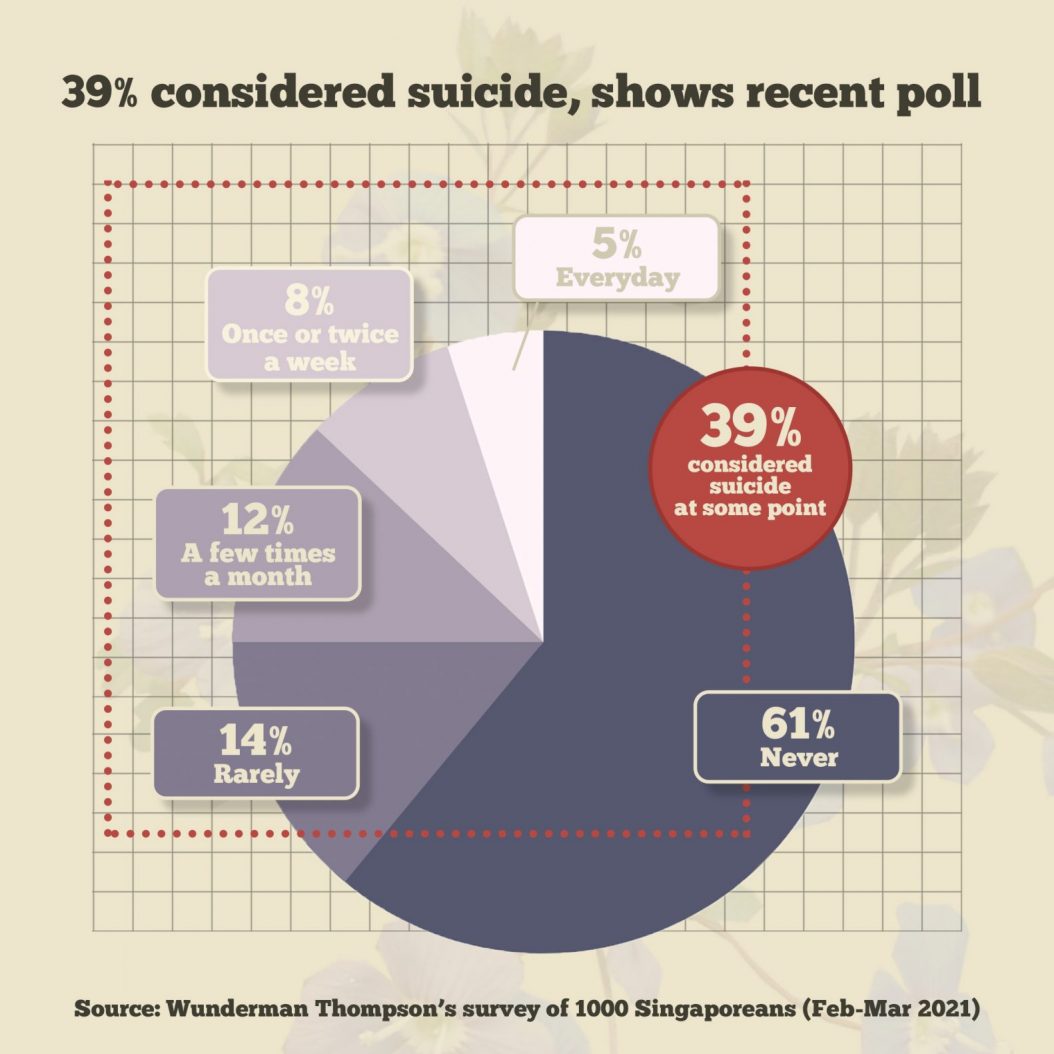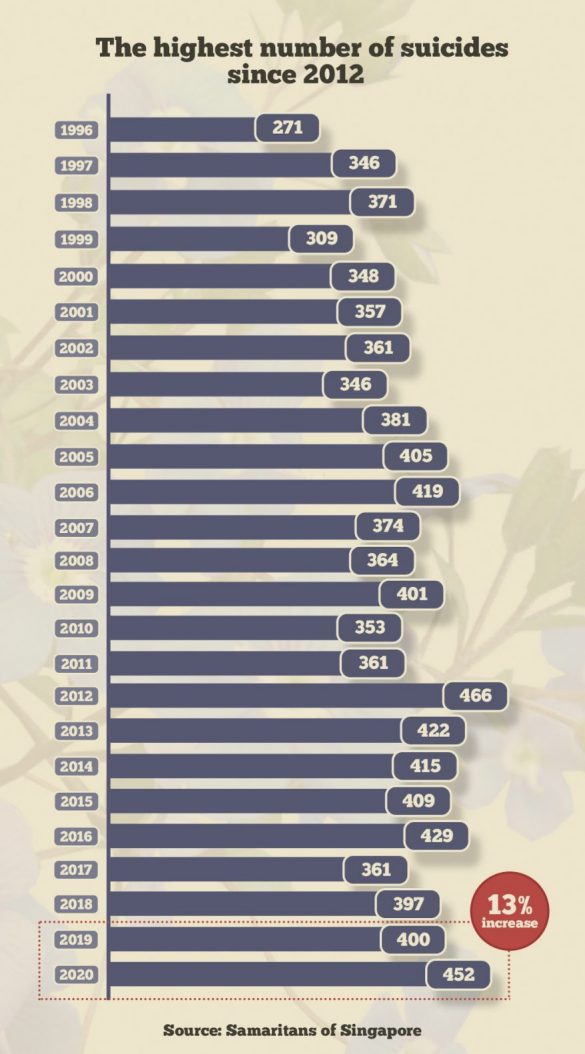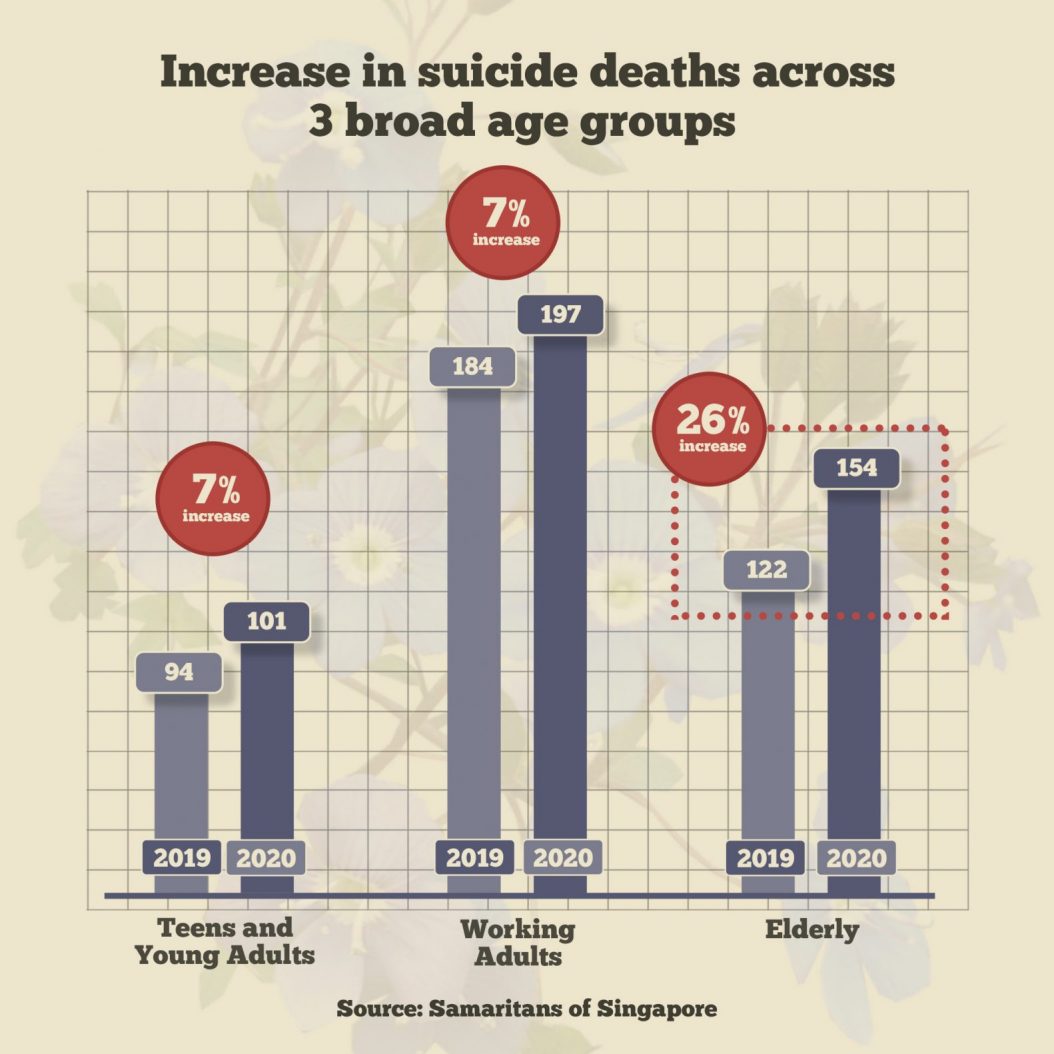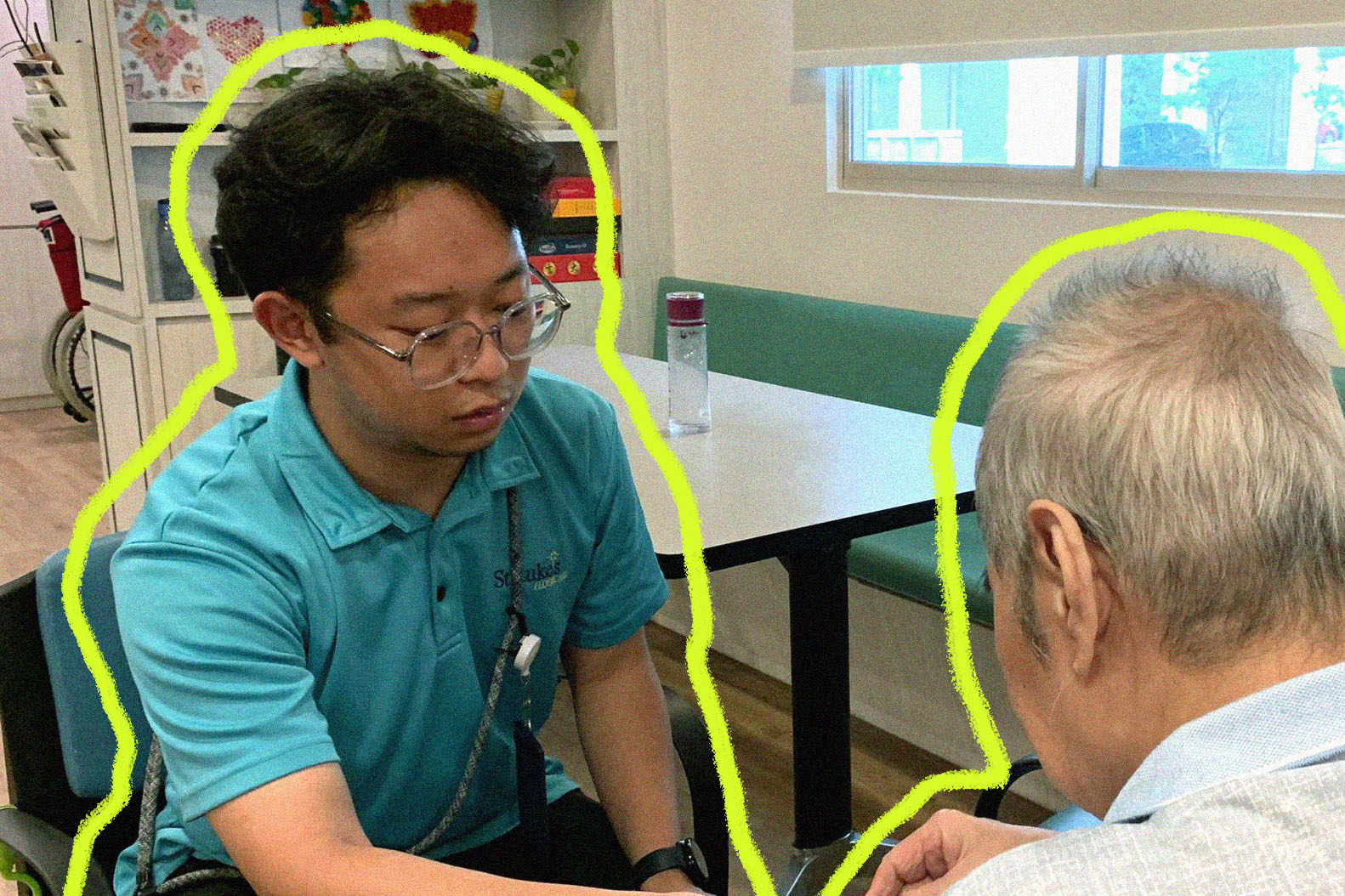COVID-19 has made for unprecedented levels of distress in society, which have resulted in suicide trends that are deeply concerning.
Just today, it was also reported that the 16-year-old River Valley High School student who was charged with murder had attempted suicide in 2019.
Amid such a bleak mental health landscape, what hope lies on the horizon?
“Last year was a difficult year for many residents in Singapore,” said Gasper Tan, Chief Executive of Samaritans of Singapore (SOS), at the inaugural Christian Mental Health Conference last week during a forum on Empowering the Church.
The organisations represented at the panel discussion were the SOS, Institute of Mental Health and PsaltCare, which runs mental health support groups.
SOS CONCERNED ABOUT SPIKE IN SUICIDE IDEATION
Noting that the coronavirus had disrupted the lives of many in Singapore, Tan shared: “In SOS, we observed that more people were seeking help. Last year, we saw an increase in demand for all our services.”
He revealed that they were very concerned about the people seeking help via SOS Care Text, a newly launched Facebook messenger initiative where members of the public can reach officers virtually.
“I want to highlight that in Care Text, 80 per cent of our clients are between 10 years old to 29 years old — and they have never been using SOS services before,” Tan pointed out.
He also went on to highlight a survey by marketing communications agency Wunderman Thompson conducted between February and March 2021 that raised more alarming findings.
Polling a total of 1,000 Singaporeans aged 18–70+, many of the responses proved to be deeply concerning.

It showed that 39% had considered suicide at some point. In fact, 8% contemplated it once or twice a week and 5% thought about it every day!
Tan then guided the conference participants through the latest statistics on suicide.
Worryingly, there were 452 suicide deaths in Singapore in the 2020 — the highest number since 2012. This represents a 13% increase compared to 400 cases in 2019.
To emphasise the point, he revealed that there were 5 times more deaths from suicide than transport accidents last year.

Taking a closer look at the number of suicide deaths in Singapore last year, Tan categorised them into three broad groups:
- 10–29 years old (Teens and Young Adults)
- 30–59 years old (Working Adults)
- 60 years old and above (Elderly)
Sadly, the figures showed an increase in suicide deaths across all three.
Suicide deaths increased by 7% in 2020 among teens and young adults as well as working adults, while the number of elderly who took their own lives increased by 26% in 2020.

Most alarming to SOS were the suicide deaths among the teens and the elderly — the spike in figures here were the highest in the last 20 years. Suicide rates in males were also the highest in two decades.
Explaining why the number was high among working adults, Tan said: “Many in this group may have experienced many seasons in their lives. Some just started their career, family, business venture, or are already into their mid-life or mid-career… So their issues are usually multiple and more complex.
“But the worrying trend was that there was an increase in suicide death all across all these three age groups.”
“And this is despite the efforts put in by many government, professional and mental health social service agencies last year,” he added, underlining the severe impact COVID-19 has wrought on the mental health landscape in Singapore.
SURVIVORS OF SUICIDE NEED HELP TOO
Tan also talked at length about a more unseen side of suicide — the loved ones left behind in the aftermath.
Remarking that suicide doesn’t just affect one life, he shared that studies have estimated that there are around six suicide survivors for every suicide.
These are often their next-of-kin or close friends who are most severely impacted by the loss.
Extrapolating the number of suicide deaths in 2020 (452), Tan suggested that there may be some 2,712 people who were affected by suicide just last year alone.
That was when he announced a new initiative born through collaboration between SOS and Christian Mental Health Advocates (CMHA), a structured support group for suicide survivors called Healing Within.
The six-session programme which will have its first pilot in September aims to minister to those affected by the recent loss of loved ones to suicide.
Jointly facilitated by SOS and CMHA co-founder Pastor Chua Seng Lee, it will be officially rolled out in October.
Tan shared that SOS is encouraged by an “increasingly community-based approach” towards mental wellness among churches today.
He also emphasised the importance of having faith communities as safe spaces where those who are struggling can find help in times of need.
This sentiment was echoed in the same forum by Adjunct Associate Professor Daniel Fung, who touched on the role of religion in mental illness.
Citing a study that looked at patients with psychosis, the CEO of IMH shared that he learned “religious coping actually improves the quality of life”.
“Individuals with psychosis actually benefit from greater community support and collaboration between clinical and religious community-based organisations, in terms of overall integration as well as quality of life,” he said.
“And this is an important point — that religion does improve recovery.”
SANCTUARIES WITHOUT STIGMA
Ending off the session, Tan pressed for more collaboration between churches and organisations like SOS.
In his view, one major challenge would be getting rid of the stigma so often attached to mental illness.
“There is tremendous stigma-breaking power in a pastor addressing mental health and trauma from the pulpit,” he said, urging church leaders to simply talk about mental health.
Doing so would challenge and change the culture towards mental health in the Church and, by virtue of that, the stigma attached to mental illness.
Knowing the challenges we face as individuals and the Church in the area of mental health, there remains yet a lot to be done.
Let’s look out for one another and our conversations in the Church, so that we may help all who are struggling in their journey towards mental wellness.
Let’s remain in an attitude of prayer for our nation. Let’s pray:
- For the pandemic situation, as the country works to bring down the sharp rise in COVID-19 cases.
- For the mental health of all who live in Singapore, especially the teenagers and elderly.
- For the fallout from the River Valley High School tragedy. Do join us in praying together at 9pm today. Here are some prayer pointers.









